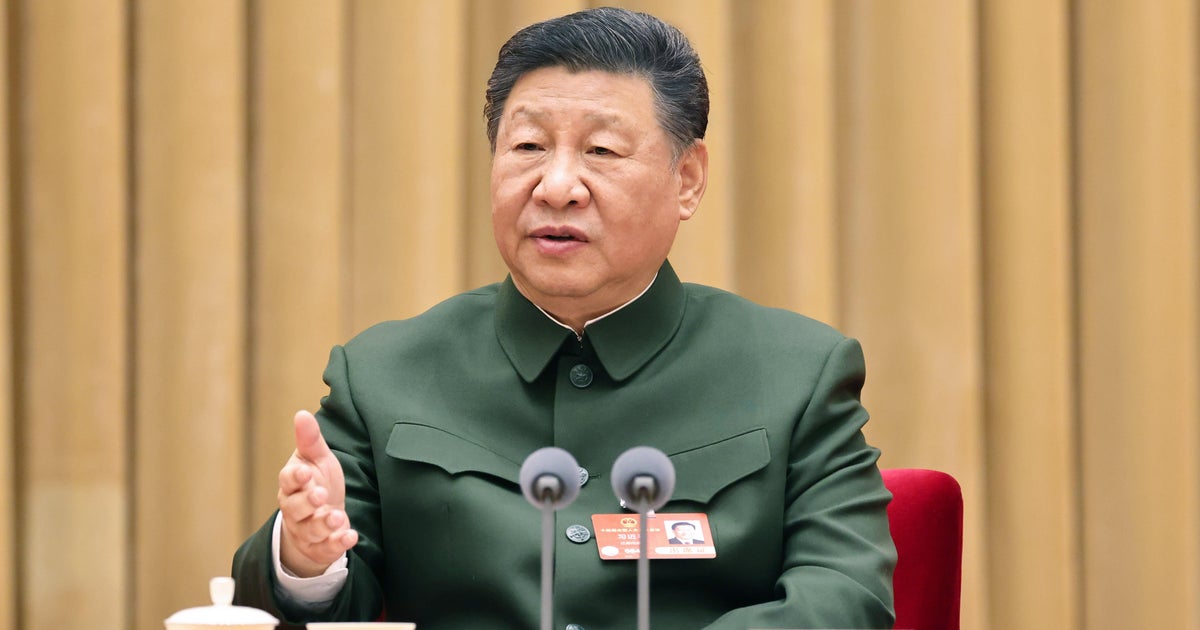

No response returned

A U.S. Department of Commerce employee has been restricted from leaving by authorities in Beijing, a State Department spokesperson told TheNews on Monday. The unidentified government employee's restricted travel was confirmed as Beijing revealed new information about a U.S.-based Wells Fargo banker who has also been subjected to an exit ban.
"We can confirm that a U.S. Patent and Trademark Office employee, while traveling to China in a personal capacity, was made subject to an exit ban in China," the State Department spokesperson said Monday. "We are tracking this case very closely and are engaged with Chinese officials to resolve the situation as quickly as possible."
The New York Times reported Monday that the employee in question is a U.S. citizen who has been prevented from leaving China since mid-April. The newspaper cited a State Department document it has obtained, adding that it shows Beijing officials seized the man's passport, credit card, cellphone and iPad while he was in the city of Chengdu on April 14.
The Times said, citing the document, that the man's documents were returned on April 22, but that he was told he could not leave the country.
At a news conference on Monday, a Chinese Foreign Ministry spokesperson declined to comment on the case of the Department of Commerce employee beyond saying that Beijing "upholds the rule of law and handles entry and exit affairs in accordance with the law."
But Foreign Ministry spokesperson Guo Jiaku did confirm that Wells Fargo banker Mao Chenyue has been restricted from leaving China and is facing criminal charges.
"Ms. Mao Chenyue is involved in a criminal case currently being handled by Chinese law-enforcement authorities and is subjected to exit restrictions in accordance with the law. Pursuant to Chinese laws, with the case still under investigation, Ms. Mao cannot leave the country for the time being and has an obligation to cooperate with the investigation," Chinese Foreign Ministry spokesperson Guo Jiaku said Monday.
Chenyue is a Managing Director at Wells Fargo and is based in Atlanta, according to her Linkedin profile, which says she is bilingual in English and Chinese. A source close to Chenyue confirmed to TheNews that she is a U.S. citizen. She leads Wells Fargo's international factoring business and was born in Shanghai, according to a June press release on the website of the non profit FCI, a global network of companies that provides factoring services.
A Wells Fargo representative told TheNews in a statement on Monday that the company was "closely tracking this situation and working through the appropriate channels so our employee can return to the United States as soon as possible."
A U.S. State Department spokesperson declined to comment Monday on Chenyue's status, "due to privacy and other considerations," but said the State Department "has no higher priority than the safety and security of American citizens."
, the State Department urges Americans travelling in China to "exercise increased caution," warning that China "arbitrarily enforces local laws, including exit bans on U.S. citizens and citizens of other countries, without fair and transparent process under the law."
U.S. citizens may only realize they have been subjected to an exit ban when they attempt to leave China, and there may be no available legal recourse to appeal such a ban via a Chinese court, according to the State Department's travel advisory.
The Chinese government also does not recognize dual nationality, meaning "U.S. citizens of Chinese descent may be subject to additional scrutiny and harassment," the guidance on the State Department's website says.
The latest incidents come at a sensitive time in relations between Beijing and Washington. In late June, the White House and officials in Beijing said the two sides had to end a trade war between the world's two largest economies.
As it stands, China faces an August 12 deadline — imposed by President Trump — to strike a new trade deal with the U.S. to end an escalating tit-for-tat trade tariff war that the countries have engaged in since Mr. Trump returned to the White House in January.
Mr. Trump imposed tariffs of up to 145% on imports from China, and Beijing responded with its own steep import duties, but the two sides agreed to a truce to allow for negotiations. In the meantime, the Trump administration has imposed 30% tariffs on imports from China, pending the August 12 deadline, when much higher rates will be imposed by both Washington and Beijing if no agreement is reached.
The standoff has increased the risks for American companies doing business in China that had already been mounting for several years.
In June 2023, after Chinese authorities of several U.S.-based firms, Beijing-based business lawyer James Zimmerman it seemed everything was being taken by the Communist Party as a potential threat.
"Unfortunately, in that kind of environment it's very difficult to operate — when everything is viewed as a national security matter and… it looks as if…. anything you do could be considered to be spying," he said.





